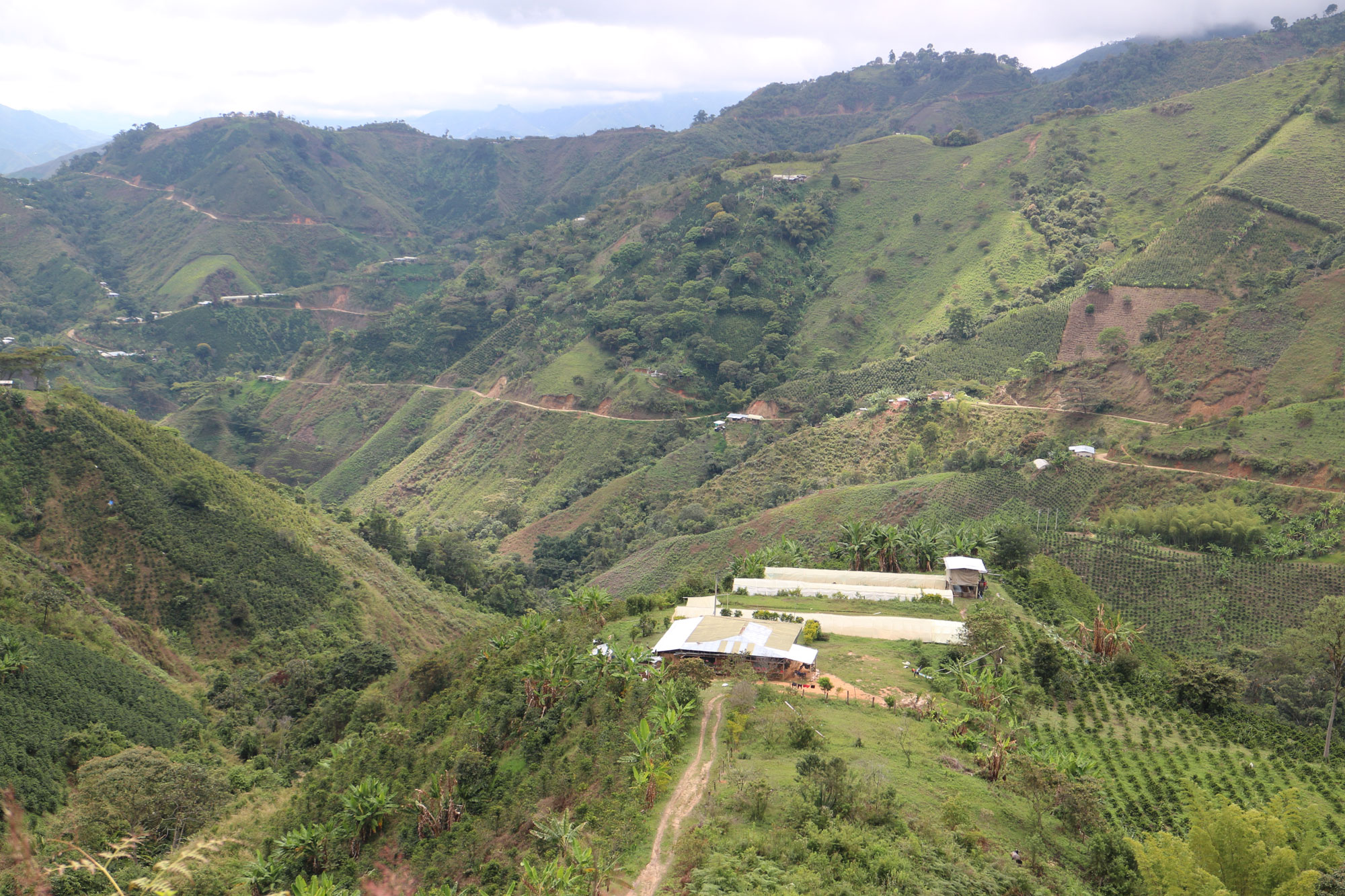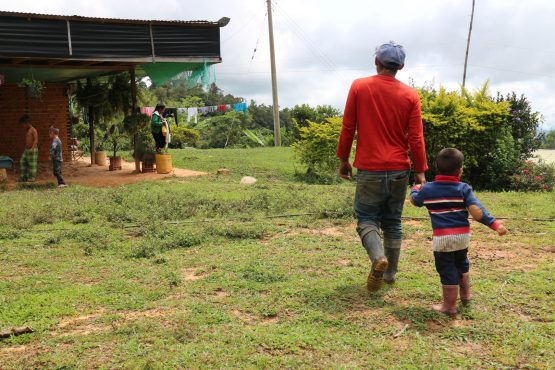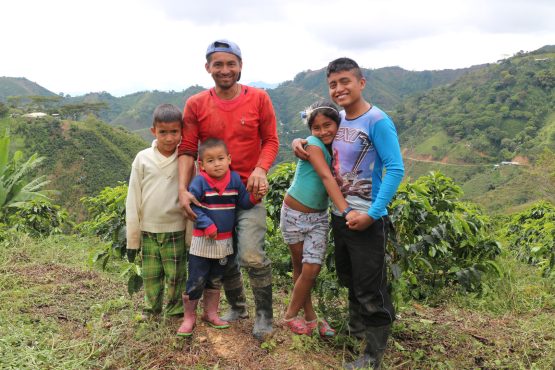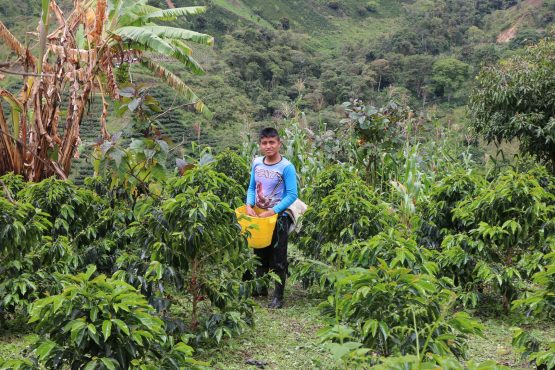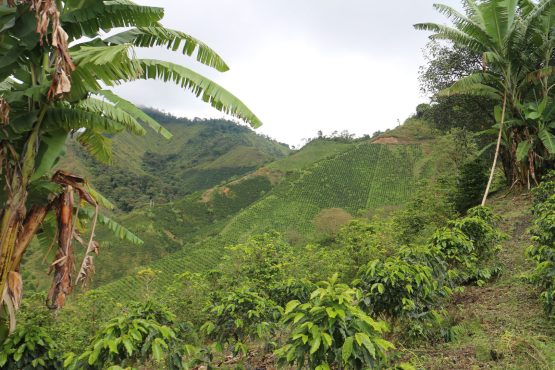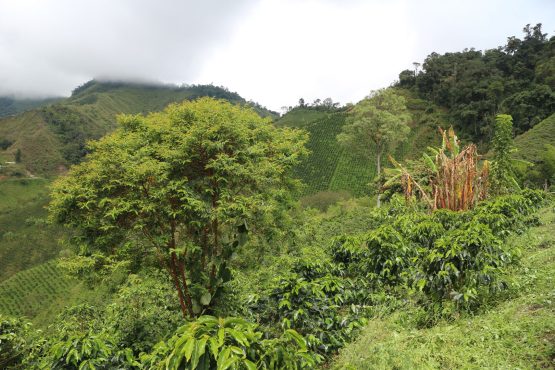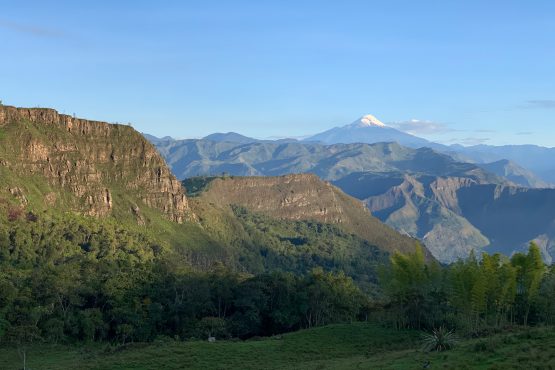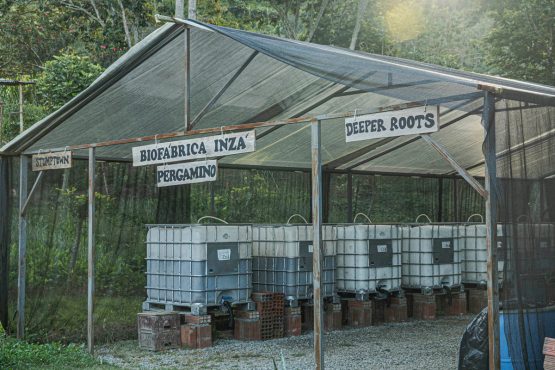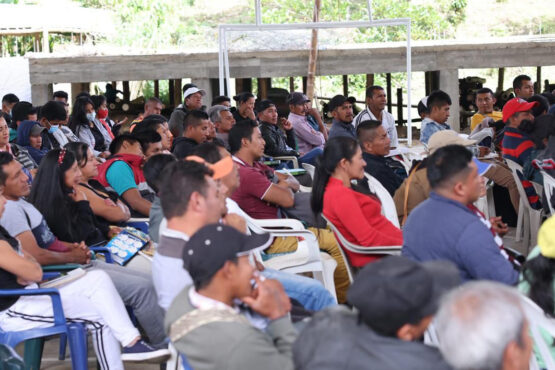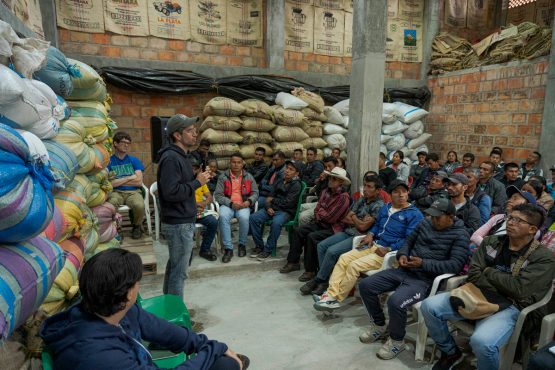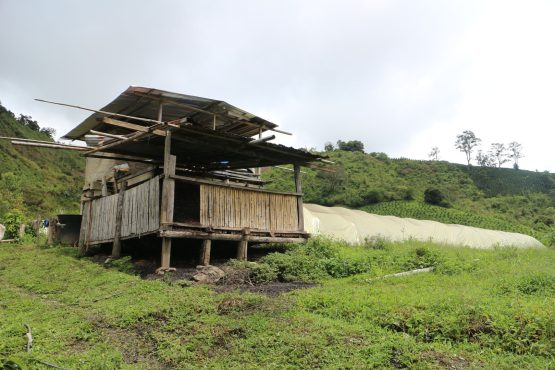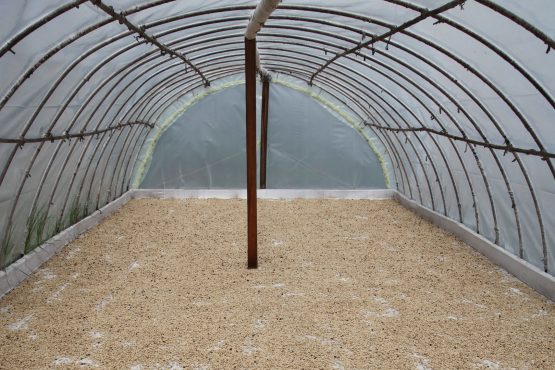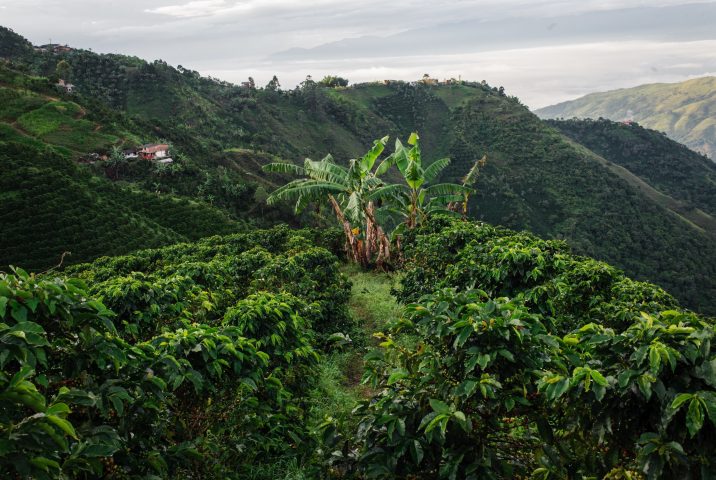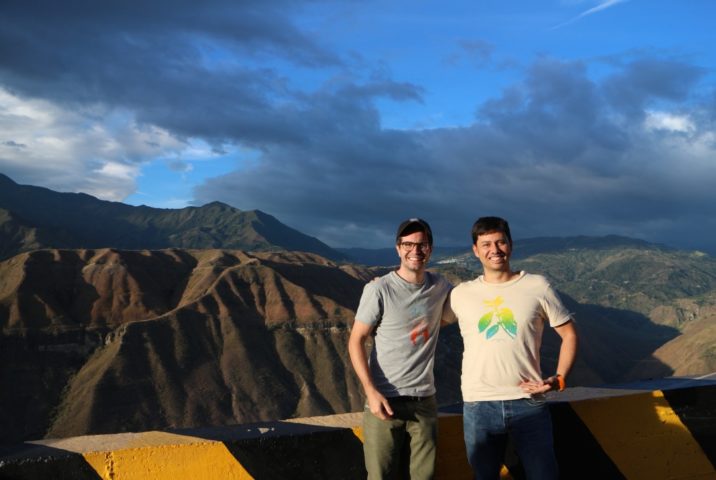El Carmen
Balanced and rich. Honey sweetness with orange, red apple and cacao nibs.
This coffee was produced by Neyid Pillimué, his wife Isaura Cuchumbe (who also owns nearby farm Los Naranjos) and their family on their farm, El Carmen, located near the town of Alto Palmar, in the municipality of Paez in the state of Cauca, in Colombia’s south.
At five hectares in size, El Carmen is a relatively large farm for the region, where plots average just one and a half hectares. The farm is situated at 1,900m above sea level, in the steep, rugged hills that surround Alto Palmar. Neyid lives on the property with wife Isaura, and their four children and four grandchildren. They moved to the region nearly 12 years ago, after saving enough money to buy their own property. Together, Neyid and Isaura have been key members of Pergamino’s Allied Producer Program, and leaders in their community.
As the eldest son of Maria Rosa Oidor, the influential matriarch of the multi-generational Pillimué family, Neyid has been been involved in coffee production from an extremely young age. During their time sourcing coffee from Cauca our export partners Pergamino have developed a close relationship with the Pillimués, who are now employed as their local logistical operator for Inzá, Cauca and La Plata, Huila. The family have a longstanding presence in the area, having farmed coffee here across four generations and have been instrumental in connecting Pergamino to the producing community. Along with keeping the town’s general store, the family has built an adjacent warehouse and QC lab, which acts as a receiving point for over 200 local producers who deliver coffee to them.
The Pillimués are determined to make a difference among the region’s coffee producers by supporting the local industry now and into the future. Neyid Pillimué Jr, who is one of the younger members of the family, has recently joined Pergamino’s team as a trainee cupper and lab assistant at the family’s warehouse, demonstrating the Pillimué’s investment in the next generation of producers and coffee operators.
Like many farms in the region, El Carmen is mostly planted with the Caturra variety, which was the most popular variety during the 1970s and 1980s when most local farms were established. In recent years, Neyid has also introduced the high-yielding hybrid Colombia, as well as two rare varieties that fetch higher prices: Gesha (as part of Pergamino’s ‘Gesha for the People’ initiative) and Chiroso, a newly identified variety that has become recognised internationally for its exceptional cup quality. Neyid farms his coffee with traditional techniques, and intercrops his plantation with shade trees and food crops for the family’s sustenance. Fertilisation occurs around three times a year, usually after manual weeding, and pesticides are rarely used.
Like most of the nearby towns, Alto Palmar has breathtaking views of Colombia’s highest volcano, Nevado del Huila, which sits at the point where the states of Huila, Tolima and Cauca meet. The rich, volcanic soil of the area makes it ideal for agriculture and contributes to the excellent cup quality of coffees grown and processed here. Cool overnight temperatures result in dense beans, which are notable for their sweetness and complexity. The lower temperatures and high rainfall experienced here also affect processing, requiring longer ferment and drying times.
ABOUT PÁEZ, CAUCA
The municipality of Páez is located in the corner of the state of Cauca, close to the border with Huila and looking out to the west over the Pacific Ocean. Much like its neighbour Inzá, this region has excellent conditions for growing high-quality coffee, with high elevations and rich volcanic soil. The plateau has stable climate year-round thanks to its proximity to the equator and the surrounding mountains, which protect the coffee against the humidity of the Pacific and the trade winds from the south. This region is an important source of water and wildlife, in addition to being prime coffee-growing land.
Páez is the traditional home of the Nasa (or Páez) people, one of Colombia’s largest indigenous groups. During the Spanish invasion of Colombia, many of the Nasa were able to avoid bloodshed by escaping to the rugged hills and high plateaus of the Andes Mountains, where the Spaniards were unable to pursue them. Today, the Nasa economy relies on agriculture, and society is organised into tight knit farming communities who distribute duties equitably under the guidance of cabildos, or locally elected councils. Like many indigenous groups across Latin America, the Nasa have spent decades lobbying for the return of their land rights, finding success in recent years. Their struggle has led to legal recognition of the fundamental rights of indigenous peoples, including recognition of the autonomy of their communal indigenous lands in the 1991 Colombian Constitution.
Neyid’s farm in Alto Palamar is located near the historically significant town of Belalcazar, one of the first regions to be recognised as communal land legally owned by the Nasa some 400 years ago.
Coffee from Cauca has historically been very difficult to access due to the region’s isolation and instability. For many years this part of Colombia was under the control of Colombia’s notorious rebel group, the FARC, and as a result, it was unsafe and violent. Since 2012, safe access to this region has been possible as a result of peace talks between the national government and the rebels. Thanks to these efforts, more and more stunning coffees from small producers in the region have become accessible.
Our export partners for this coffee, Pergamino, have worked hard commercialise specialty-grade coffee throughout Cauca, and have uncovered some stunning coffees and very dedicated producers in the process. They work closely with the producers to give them feedback on their coffees (provided by Pergamino’s expert team of cuppers) and provide top up payments when the coffee is sold at a higher premium.
Head here to learn more about the work of Pergamino.
HOW THIS COFFEE WAS PROCESSED
The coffee in this lot was selectively hand-harvested, with most labour being provided by Neyid and his family. It was processed using the washed method at the farm’s ‘micro-beneficio’ (mill).
The coffee was pulped using a small manual pulper and then placed into a fermentation tank without water, where it was fermented for up to 48 hours, depending on the climate, and then washed using clean water from nearby rivers and streams.
The coffee was then carefully dried (over 10–18 days) on raised beds and concrete patio, which are covered by a greenhouse-style canopy that acts to protect the coffee from the rain and prevent condensation dripping back onto the drying beans. The greenhouses are constructed out of plastic sheets and have adjustable walls to help with airflow, and temperature control to ensure the coffee can dry slowly and evenly.
Once dry, the coffee was delivered to Pergamino’s warehouse in Medellín, where it was cupped and graded. Once approved, coffee rested in parchment until it was ready for export.
